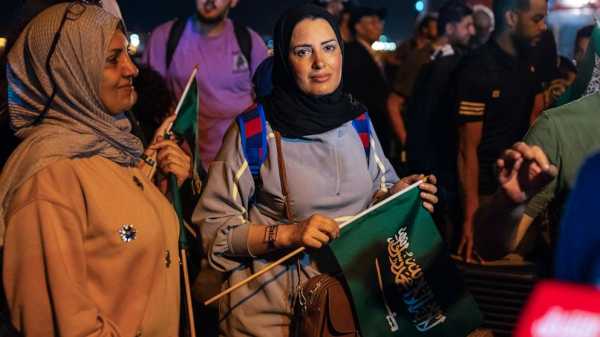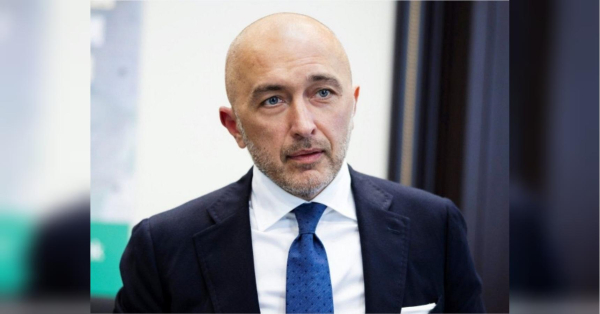
CAIRO — Sudanese and foreigners streamed out of the capital of Khartoum and other battle zones as fighting Tuesday shook a new three-day truce brokered by the United States and Saudi Arabia, the latest attempt to pull Africa's third-largest nation back from the abyss.
So far, a series of short cease-fires the past week have either failed outright or brought only intermittent lulls in the fighting that has raged between the forces of the country's two top generals since April 15. The lulls have been enough for dramatic evacuations of hundreds of foreigners by air and land, which continued Tuesday.
But they have not been enough to bring relief to millions of Sudanese caught in the crossfire, struggling to find food, shelter and medical care as explosions and gunfire rip through their neighborhoods. Calls for negotiations to end the crisis have been ignored, and for many Sudanese, the departure of diplomats, aid workers and other foreigners and closure of embassies is a terrifying sign that international powers expect the mayhem to only worsen.
Thousands of Sudanese have been fleeing Khartoum and its neighboring city of Omdurman, fearing that the rival camps will escalate their all-out battle for power once evacuations are completed.
In Khartoum, bus stations were packed Tuesday morning with people who had spent the night there in hopes of getting on a departing bus. Drivers increased prices, sometimes tenfold, for routes to the border crossing with Egypt or the eastern Red Sea city of Port Sudan. Fuel prices have skyrocketed, to $67 a gallon from from $4.2, and prices for food and water have doubled in many cases, the Norwegian Refugee Council said.
Late Monday, U.S. Secretary of State Antony Blinken announced that he had helped broker a new 72-hour cease-fire. The truce was to last until late Thursday night, extending a nominal three-day truce over the weekend for the Muslim Eid al-Fitr holiday.
The Sudanese military, commanded by Gen. Abdel Fattah Burhan, and the rival Rapid Support Forces, a paramilitary group led by Gen. Mohammed Hamdan Dagalo, said Tuesday they would observe the cease-fire. In separate announcements, they said Saudi Arabia played a role in the negotiations.
“This cease-fire aims to establish humanitarian corridors, allowing citizens and residents to access essential resources, healthcare, and safe zones, while also evacuating diplomatic missions,” the RSF said in a statement.
The army announcement used similar language, adding that it will abide by the truce “on the condition that the rebels commit to stopping all hostilities.”
But fighting continued, including in Omdurman, a city across the Nile River from Khartoum. Omdurman resident Amin Ishaq said there were clashes early Tuesday around the state television headquarters and around military bases just outside Omdurman.
“They stop only when they run out of ammunition,” he said.
“Sounds of gunfire, explosions and flying warplanes are still heard across Khartoum,” said Atiya Abdalla Atiya, a senior figure in the Sudan Doctors’ Syndicate, a group that monitors casualties. “They don’t respect cease-fires.”
Clashes escalated in West Darfur province Tuesday, residents said. Armed groups, wearing RSF uniforms, attacked serval areas in Genena, the provincial capital, burning, and looting properties and camps for displaced people.
“Fierce battles are raging all over the city,” said a doctor in Genena, who asked to remain anonymous for fear of reprisals. "All eyes are on Khartoum but the situation here is unimaginable.” In Genena's center, women and children were fleeing homes, and the city's main hospital has not functioned for days, with unknown numbers of dead and wounded, she said.
More fighters on motorcycles and horses have flowed into the city from neighboring areas to join the battles, with dead bodies lying in the streets, according to Darfur 24, an online news outlet focusing on covering the war-wrecked region. Sudan's western Darfur region is where the RSF has its roots, born from the Janjaweed militias accused of widespread atrocities in putting down a rebellion in the early 2000s.
More than 420 people, including at least 291 civilians, have been killed and over 3,700 wounded since the fighting began. Electricity and internet are cut off in much of the country, and hospitals are near collapse. Even before April 15, one-third of Sudan's population of 46 million relied on humanitarian assistance. Most of those providing aid have suspended operations.
Those who are able have made their way to Egyptian border, Port Sudan or relatively calmer provinces along the Nile. But the full scale of displacement has been difficult to measure.
At least 20,000 people have fled from Khartoum to the city of Wad Madani, 160 kilometers (100 miles) to the south, the U.N. Office for the Coordination of Humanitarian Affairs said. Some 20,000 Sudanese have fled to Chad and around 4,000 South Sudanese refugees living in Sudan have returned home, said Olga Sarrado, spokesperson of the U.N. refugee agency UNHCR. The agency is gearing up for tens of thousands more to flee to neighboring countries.
“ The fighting looks set to trigger further displacement both within and outside the country,” she said, speaking at a U.N. briefing in Geneva.
United Nations Secretary-General Antonio Guterres warned of a “catastrophic conflagration” that could engulf the whole region. He urged the 15 members of the Security Council to “exert maximum leverage” on both sides in order to “pull Sudan back from the edge of the abyss.”
Meanwhile, airlifts of foreigners continued.
Germany said one of its rescue planes flew another mission early Tuesday, bringing the total of people it has evacuated to nearly 500. French military spokesman Col. Pierre Gaudilliere told journalists Tuesday that the French evacuation mission was completed, having flown out more than 500 people from 40 countries, though a Navy frigate will remain off Port Sudan to help evacuations.
The European airlift, pulling out a broad range of private citizens from many countries, has stood in contrast to more limited operations by the United States and Britain, which sent in teams Sunday to extract their diplomats but initially said they couldn't organize evacuations for private citizens.
After growing criticism of its failure to help civilians, Britain said Tuesday that it will run evacuation flights for U.K. nationals from an airfield outside Khartoum. But those trying to get on a flight will have to make their own way to the airfield, said British Foreign Secretary James Cleverly.
The situation is “dangerous, volatile and unpredictable,” Cleverly told Sky News. “We cannot predict how the situation on the ground will develop."
The U.S. said Monday it is now indirectly helping private American citizens get from Khartoum to Port Sudan. U.S. officials are helping citizens connect to other countries' convoys making the journey and then to find transport out of the country, as well as using reconnaissance assets to determine safe routes, said White House national security adviser Jake Sullivan.
___
Associated Pres writers Jill Lawless in London and Kirsten Grieshaber in Berlin contributed to this report.
Sourse: abcnews.go.com






